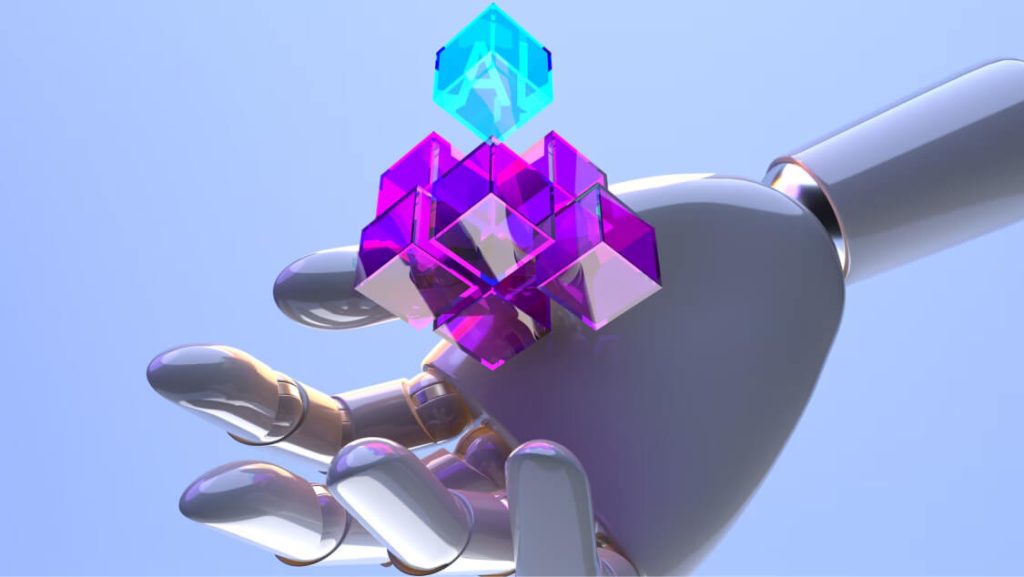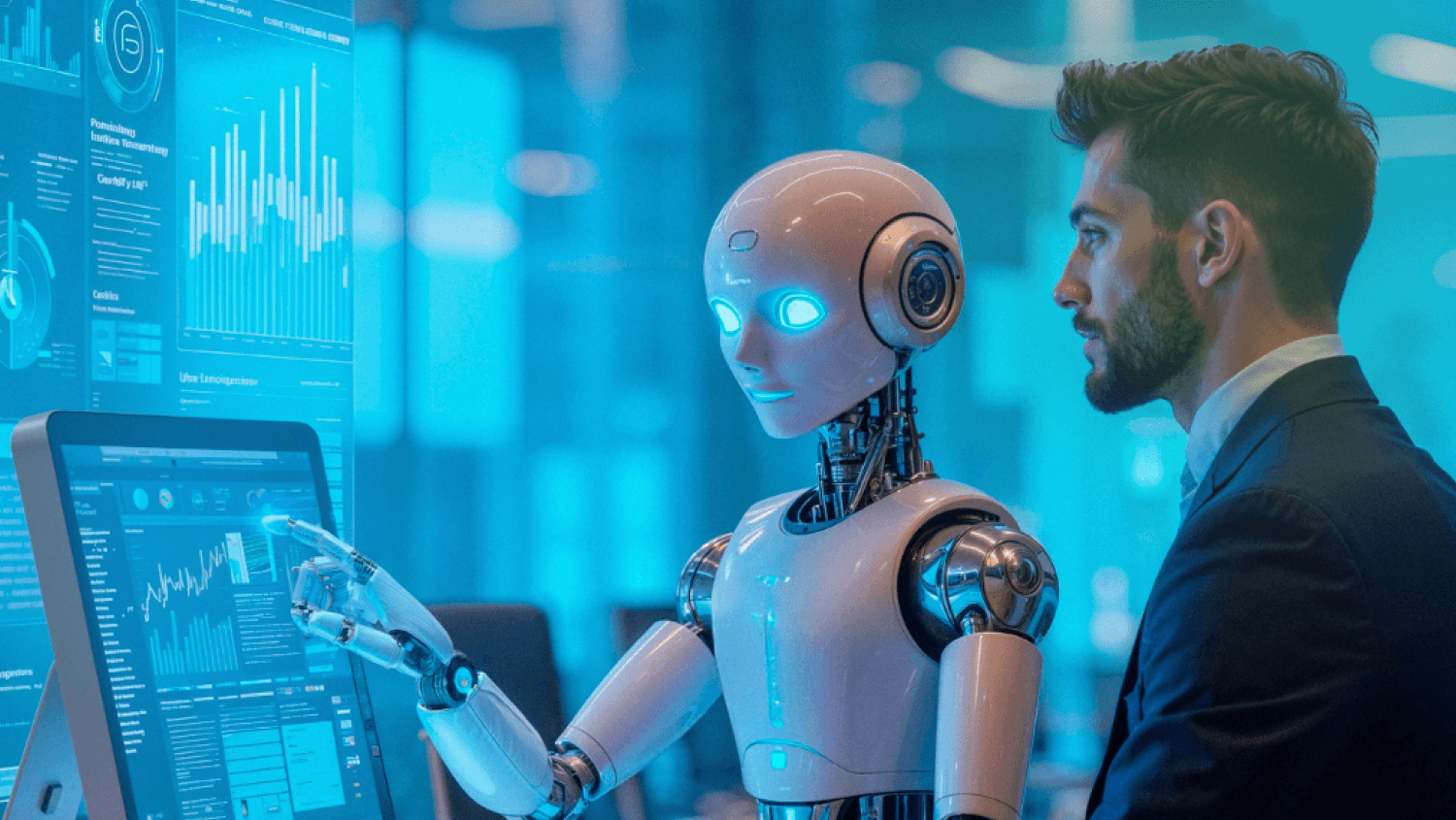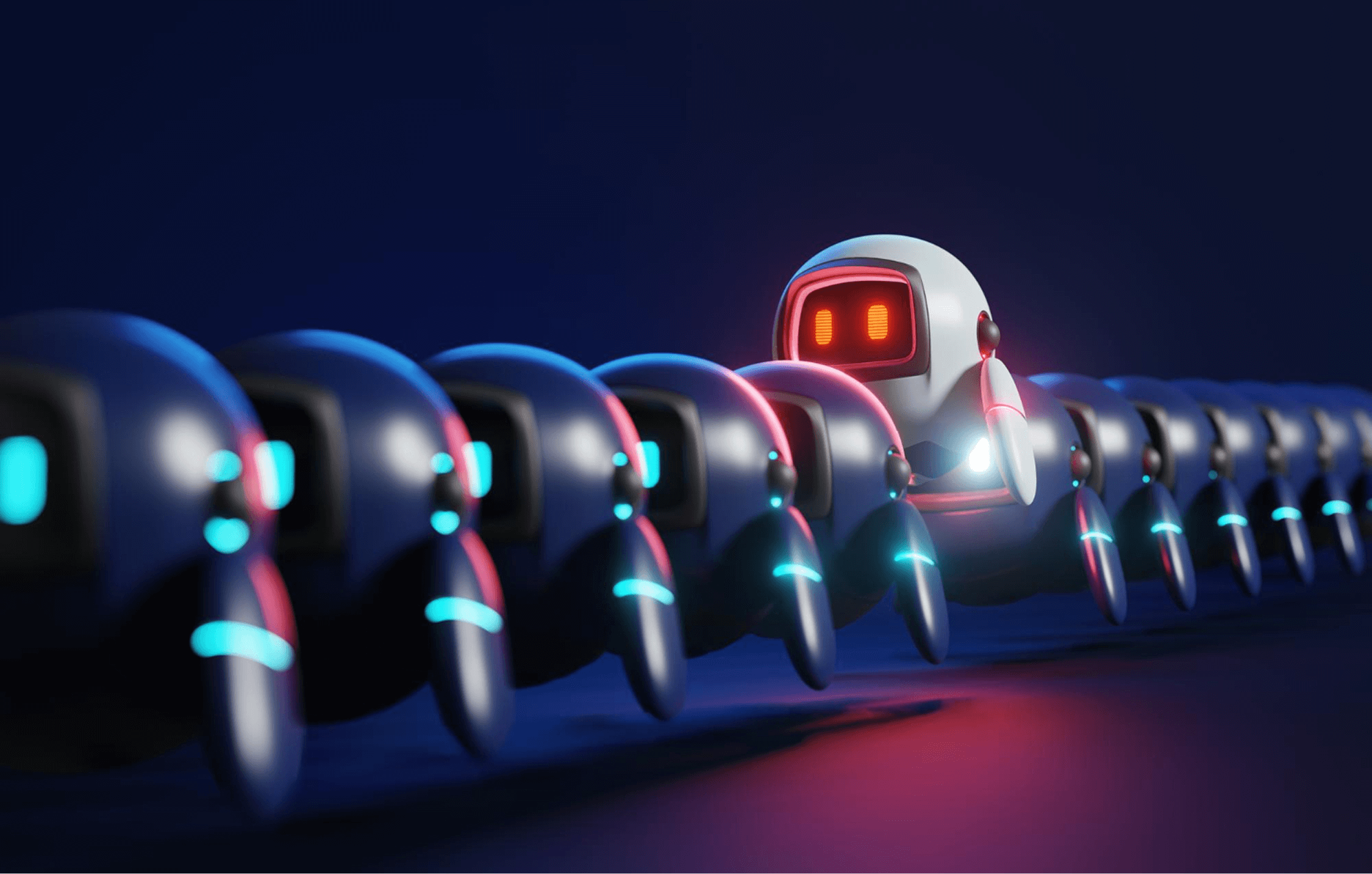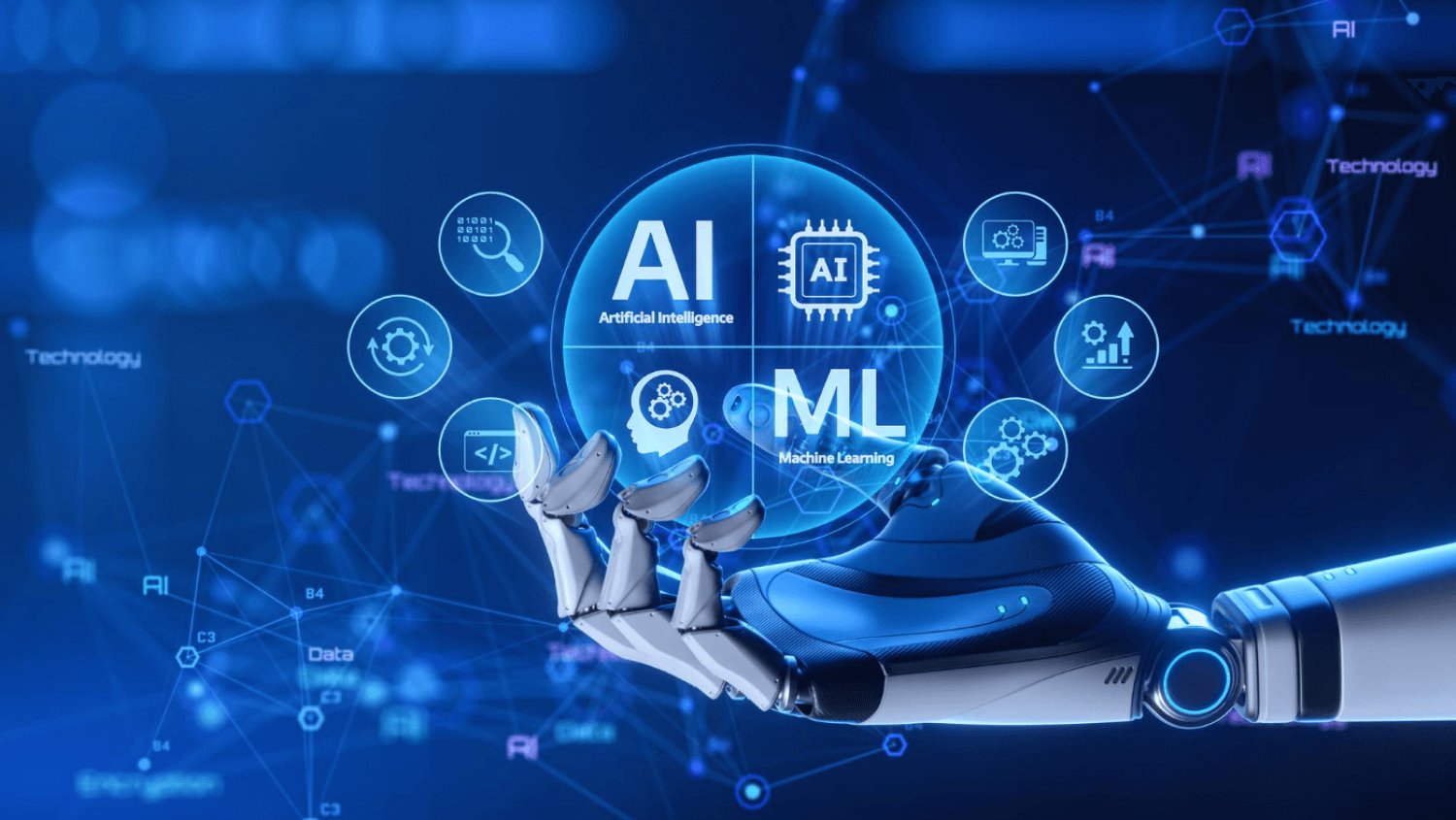When two of the most groundbreaking technologies—artificial intelligence and blockchain—come together, the possibilities are endless. The integration of AI into blockchain technology is transforming the crypto space, offering smarter solutions, improved data security, and enhanced data usage.
From streamlining processes to optimising data sharing, this powerful combination is redefining how digital assets and decentralized systems operate.
In fact, the global AI market is projected to reach $1.8 trillion by 2030, while blockchain adoption in various industries is expected to surpass $1.43 trillion within the same period.
The use of AI in blockchain brings advanced tools like machine learning and predictive analysis to the table. These tools analyse vast amounts of blockchain data, helping identify patterns, improve decision-making, and ensure systems remain secure and efficient.
As cryptocurrency continues to expand, the combination of AI and blockchain technology is solving real-world challenges and driving meaningful innovation.
In this blog, we’ll take a closer look at how these two technologies are working together to create smarter, more efficient solutions.
Why Blockchain-Based AI Solutions are the Future
Artificial Intelligence (AI) and blockchain are two groundbreaking technologies that have already reshaped industries on their own. But when combined, they unlock a whole new world of possibilities.
It’s futuristic to have AI systems that are not only super smart but also decentralized, transparent, and incredibly secure. Well, it’s happening now, and here’s why blockchain-based AI solutions are the next big thing.
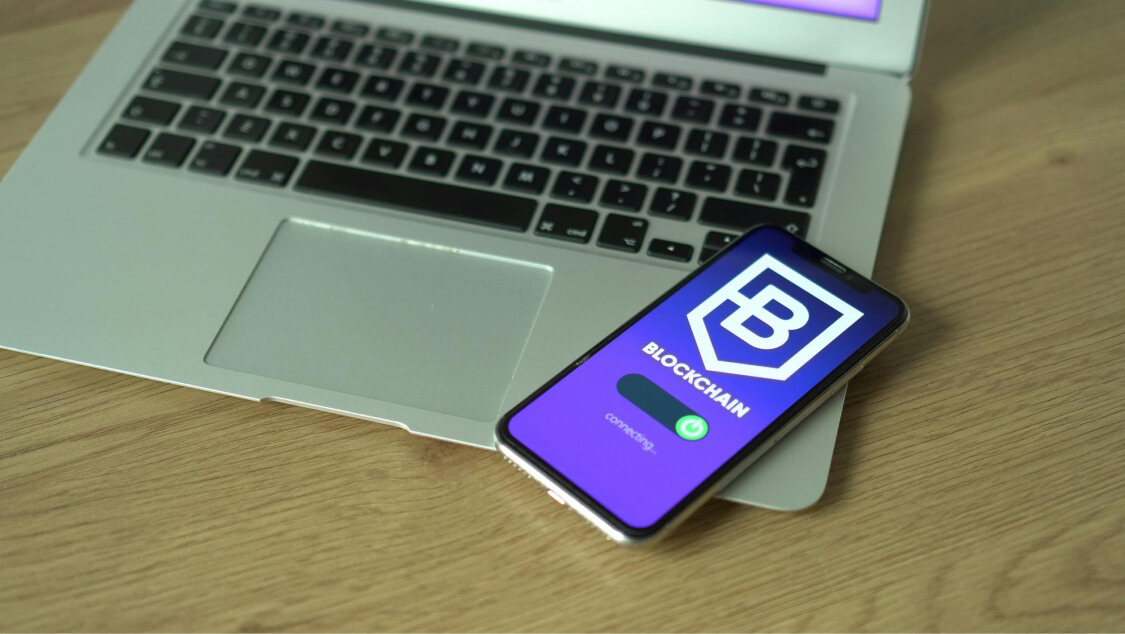
What’s the Deal with Decentralization?
Traditional AI systems often rely on centralized servers to process and store data. This centralization creates a single point of failure, making them vulnerable to hacks, outages, or even manipulation.
With blockchain, AI becomes decentralized, Data is distributed across a network of nodes, reducing the risk of failure. It ensures no single entity has excessive control over the system.
In simpler terms, decentralization keeps things fair and resilient.
Next-Level Security and Data Integrity
Data breaches and manipulation are some of the biggest concerns in the digital world. AI systems rely on massive amounts of data, and if this data gets tampered with, the results can be disastrous.
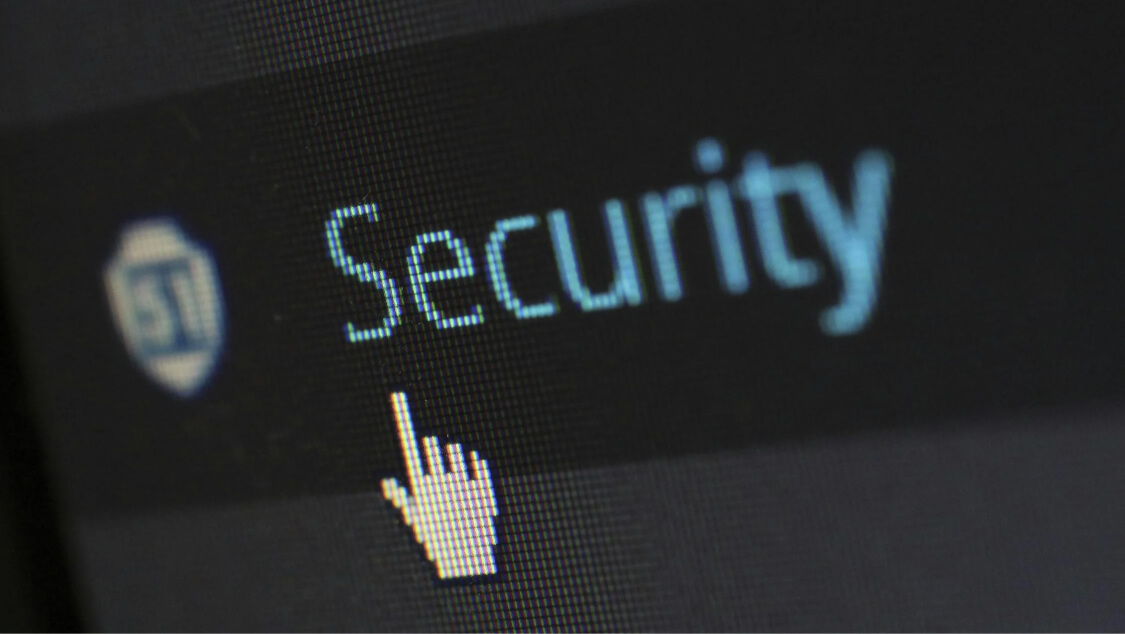
Blockchain’s role in security
- Blockchain ensures that all data added to the network is encrypted and immutable.
- Every transaction is verified and recorded, making it virtually impossible for bad actors to tamper with the data.
This means AI systems running on blockchain are much harder to compromise, and the results they produce are far more trustworthy.
Transparency That Builds Trust
One common complaint about AI is the lack of transparency, often referred to as the “black box problem.” People have no clue how decisions are made, which can lead to scepticism.
Blockchain changes the game here:
- Every transaction or decision made by an AI model can be logged on the blockchain.
- This creates a transparent system where users can trace the “why” behind decisions.
For industries like healthcare or finance, this transparency is a game-changer. It’s not just about getting results; it’s about trusting those results.
Solving Data Silos and Bias in AI
Traditional AI systems often operate in silos, meaning they can only access and process limited data within their own ecosystem. This creates two major problems:
- Data silos: AI lacks access to diverse datasets, which limits its capabilities.
- Biased algorithms: Limited or poorly curated data can lead to biased decisions, which is bad news for everyone.
How blockchain helps:
- Blockchain enables secure and seamless sharing of data across different platforms without compromising privacy.
- It ensures data is diverse, verified, and up-to-date, leading to more accurate and unbiased AI outcomes.
In short, blockchain opens up AI to a much bigger and better world of data.
Crypto AI Agents: The Next Wave in Blockchain Innovation
Crypto AI agents are like the ultimate multitaskers in the blockchain world. These are autonomous, AI-powered programs designed to perform specific tasks within decentralized ecosystems.
So, what makes them special? These agents don’t just execute commands—they learn, adapt, and make decisions based on real-time data.
What Are Crypto AI Agents?
In simple terms, crypto AI agents are smart programs that:
- Operate in blockchain environments.
- Use AI to analyse data, make predictions, and take action.
- Interact with decentralized systems without human intervention.
These agents manage complex tasks efficiently and autonomously. Their ability to operate 24/7 and handle large datasets makes them ideal for roles in decentralized finance (DeFi), trading, and more.
Roles of Crypto AI Agents
Decentralized Finance (DeFi):
In the world of DeFi, crypto AI agents play a massive role:
- Yield Optimisation: They analyse multiple liquidity pools to maximise returns for users.
- Risk Management: AI agents assess market conditions and dynamically adjust positions to reduce exposure to losses.
Trading Bots:
AI agents are widely used in crypto trading to execute real-time trades based on market trends.
- Market Analysis: They predict price movements using historical data and sentiment analysis.
- Automated Trades: These bots execute buy/sell orders at lightning speed, removing human emotion from the equation Smart Contracts:
AI agents also enhance smart contracts by making them more intelligent and adaptive:
- They evaluate conditions dynamically rather than sticking to rigid pre-set rules.
- For example, an AI-powered insurance contract might use real-time weather data to process claims automatically.
Governance and DAOs:
In decentralized autonomous organisations (DAOs), crypto AI agents help with governance tasks:
- They analyse voting trends and propose strategies to align with community goals.
- AI ensures fair resource allocation based on real-time data.
With AI and blockchain driving innovation across industries, have you wondered how AI is transforming advertising and media? Explore more in our blog, AI for Advertising, Media, and Entertainment – Overview and Future Trends.
Popular Crypto AI Agents in Action
Numerai
Numerai blends AI with blockchain to crowdsource financial predictions. AI agents use anonymised data to improve trading models, creating an innovative hedge fund.
SingularityNET
This decentralized marketplace allows AI developers to share and monetise their AI models. Its agents facilitate seamless data exchange and decision-making across blockchain environments.
Ocean Protocol
Ocean Protocol’s agents work as data brokers, ensuring users can access and monetize data without compromising privacy. These agents use AI to evaluate the value and reliability of shared datasets.
Why Are Crypto AI Agents the Future?
Crypto AI agents bring unmatched speed, efficiency, and intelligence to blockchain ecosystems. Here’s why they’re game-changers:
- 24/7 Operation: They never sleep, making real-time decisions around the clock.
- Decentralization: Operating on blockchain removes the need for central control, ensuring fairness.
- Enhanced Precision: With AI, these agents analyse vast datasets quickly, making smarter decisions.
- Cost Efficiency: Automating tasks reduces the need for intermediaries, lowering transaction costs.
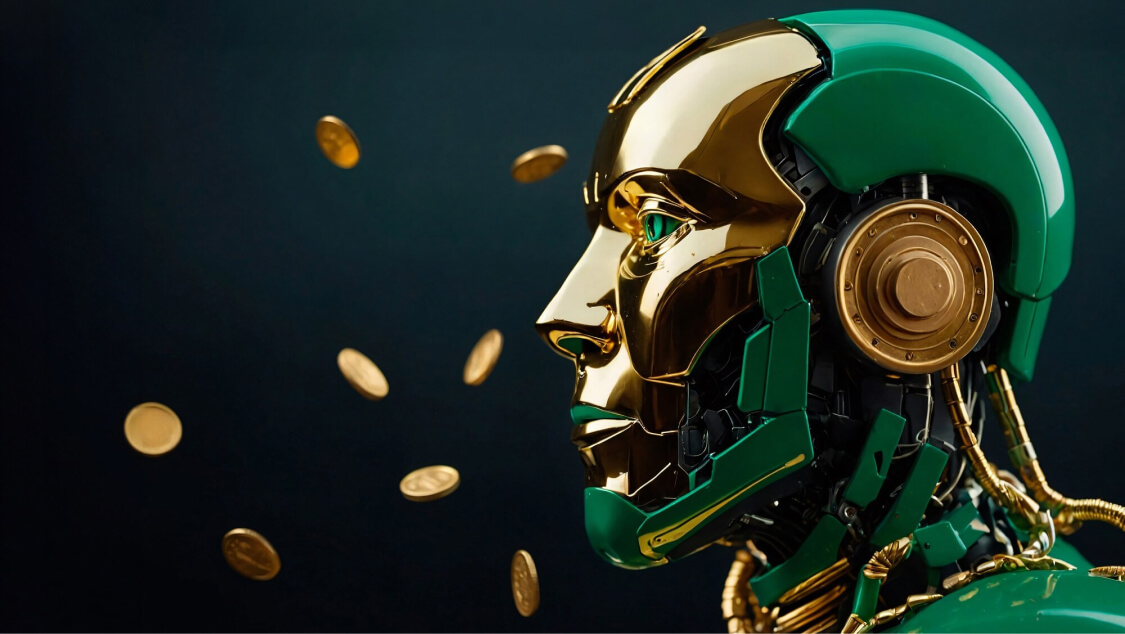
Top 5 AI × Crypto Projects
NEAR Protocol
NEAR Protocol is a highly scalable blockchain platform designed to enable decentralized applications. It integrates AI-driven tools to improve scalability and performance, offering seamless interoperability between various blockchains.
NEAR’s sharding technology ensures that AI applications can run efficiently across decentralized networks, providing faster and more scalable solutions.
Internet Computer
The Internet Computer is a decentralized computing network built by the Dfinity Foundation. It allows smart contracts and applications to run at web speed with an open-source model.
The integration of AI in Internet Computer enables faster decision-making and automation in decentralized applications, making it a powerful tool for AI-driven platforms.
Render
Render is a decentralized cloud rendering network that connects users to idle GPU power from around the world. By using AI and machine learning models, Render optimises the rendering process and reduces costs.
This platform is especially useful for industries like gaming, architecture, and media, where high-performance rendering and AI-powered algorithms are critical.
Bittensor
Bittensor is a decentralized machine learning network that enables the sharing of AI models across various blockchain networks.
Through Bittensor’s framework, AI developers can train their models on a distributed network while earning rewards. This project is transforming how AI models are trained, shared, and monetised within the crypto space.
Filecoin
Filecoin is a decentralized storage network that uses blockchain technology to store and retrieve data.
The integration of AI in Filecoin allows for more efficient data indexing, retrieval, and predictive analytics. It helps optimise storage management, improving the overall performance of decentralized data systems.
As blockchain evolves, the question arises: Can cryptocurrencies become eco-friendly? Discover the answer in our article, The Future of Green Cryptocurrencies: Eco-Friendly Blockchain Solutions.
Effects of US Elections on Crypto x AI
When it comes to disruptive technologies like blockchain and AI, political landscapes play a huge role in shaping their growth. US elections, in particular, can send ripples across global markets, impacting regulations, investments, and overall adoption.
With every new administration comes a fresh perspective on how technologies like crypto and AI should be regulated or encouraged. So, how do these shifts influence blockchain-AI solutions?
How Elections Shape the Regulatory Landscape
US elections often redefine policies that directly impact the crypto and AI industries. Regulation is a big deal here because both technologies exist in relatively uncharted territory.
Crypto Regulations:
- Elections can result in either tighter regulations or a more open, innovation-friendly approach.
- A pro-regulation government might prioritise consumer protection, leading to stricter rules on crypto exchanges and token issuances.
- On the flip side, a government focused on innovation could encourage blockchain adoption through tax incentives and clearer legal frameworks.
AI Policies:
- AI often gets tied to broader discussions about data privacy, ethical concerns, and workforce automation.
- A tech-savvy administration may push for funding AI research and creating public-private partnerships, whereas a more cautious government could impose limitations to avoid risks like biased algorithms or misuse of AI.
For blockchain-AI solutions, this regulatory balance is critical. Policies that restrict crypto could limit funding for blockchain-based AI projects.
Conversely, AI-specific regulations might set boundaries for how algorithms interact with decentralized systems.
Tap into our expert talent pool to build cutting-edge AI solutions.
Historical Market Reactions to Political Shifts
The crypto market, in particular, has a history of reacting to political changes:
- 2016 Elections: The rise of a deregulation-focused administration sparked optimism for tech and crypto, leading to a surge in Bitcoin prices.
- 2020 Elections: Uncertainty during the transition period caused market fluctuations, but renewed focus on digital innovation under the new administration boosted the industry’s confidence.
Similarly, AI funding trends often correlate with government priorities:
- AI Research Funding: Historically, administrations prioritising tech investment have led to a boom in AI-related startups.
- Public Sentiment: Elections that raise concerns about privacy or job automation tend to create hurdles for AI’s acceptance.
Potential Trends for Blockchain-AI Solutions Post-Election
Here’s what we might expect based on historical patterns and emerging priorities:
- Increased Clarity on Regulations:
If the government leans towards clear and supportive crypto laws, blockchain-AI projects could thrive. For example:- More institutional investments in decentralized AI systems.
- Broader adoption of AI-powered blockchain tools in industries like healthcare and finance.
- Enhanced Focus on Ethical AI:
With growing discussions about ethical AI, governments might mandate transparency and accountability in AI models. For blockchain-AI, this could mean:- Greater reliance on blockchain’s transparency for AI decision tracking.
- New opportunities for decentralized platforms to position themselves as ethical alternatives.
- Volatility in Crypto Markets:
Political uncertainty often fuels short-term price swings in crypto. Post-election, a clear stance on crypto regulations could stabilise the market, encouraging long-term investments in blockchain-AI innovation. - Global Competition in Tech Innovation:
Elections in the US can influence global blockchain and AI dynamics. A tech-forward administration might invest heavily in R&D to stay ahead of international rivals like China, boosting the ecosystem for blockchain-AI projects.
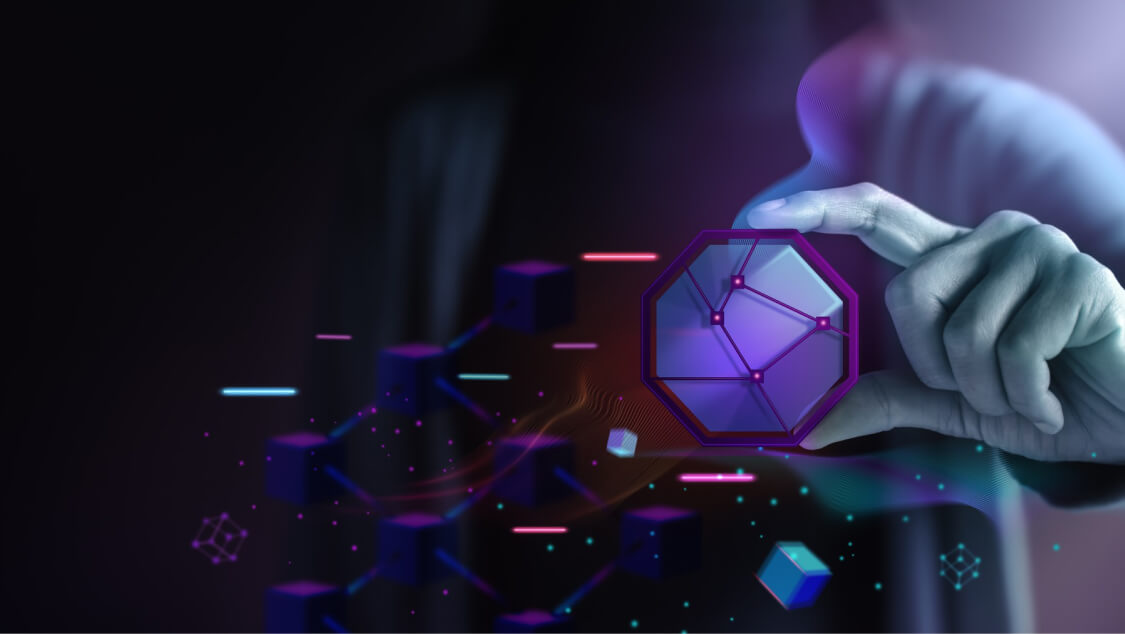
Real-World Applications & Case Studies
The integration of artificial intelligence and blockchain technology is making a significant impact across various industries. Here are two key use cases that highlight how these technologies are being applied:
Supply Chain Management
Blockchain ensures transparency and immutability, while AI provides predictive insights to optimise logistics, reduce costs, and improve efficiency.
Finance
In the financial sector, the combination of AI and blockchain enhances security, speeds up cross-border payments, and reduces fraud risk.
Examples:
AgrBlockIoT
In supply chain management, AgrBlockIoT leverages blockchain for transparent record-keeping, ensuring the accuracy and integrity of food origin data.
At the same time, AI analyses real-time data from IoT sensors to offer predictive insights, helping optimise operations and improve food quality and safety.
Ripple
Ripple uses blockchain technology and AI-powered solutions to enable faster, more secure, and cost-effective cross-border payments.
Their RippleNet blockchain allows financial institutions to settle transactions in real-time, while AI-driven payment solutions enhance operational efficiency.
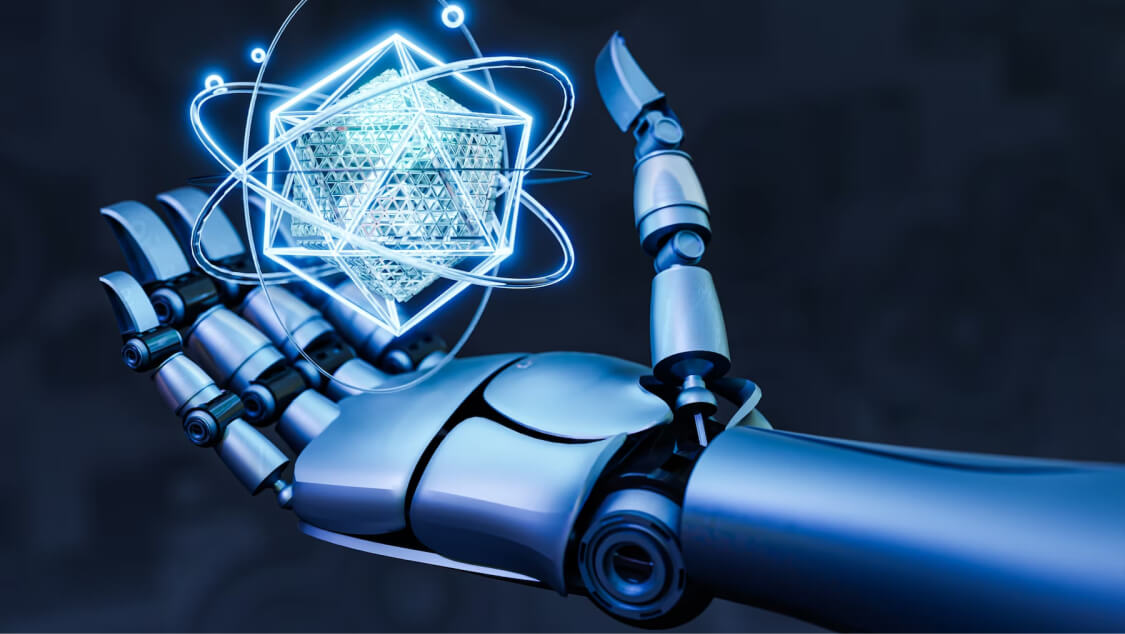
Challenges and Considerations: Navigating AI and Blockchain Integration
AI and blockchain are exciting technologies, but they’re not without their challenges. From scalability to ethical concerns, building solutions in this space requires a clear understanding of the roadblocks—and how to address them.
Let’s explore some of the biggest hurdles and key considerations for developers and businesses looking to dive in.
The Biggest Challenges
Scalability:
- The Problem: Both AI and blockchain are resource-heavy. Blockchain networks often face issues with transaction speeds and costs (hello, Ethereum gas fees), while AI needs significant computational power to process large datasets.
- The Impact: When combined, the demands of AI models and blockchain’s decentralized architecture can create bottlenecks, slowing down performance.
- Possible Fixes: Emerging solutions like layer-2 scaling (e.g., Polygon for Ethereum) and more efficient AI algorithms can help.
Energy Consumption:
- The Problem: Blockchain, particularly Proof-of-Work systems like Bitcoin, is notorious for its energy use. Add AI training—which already guzzles power—and you’ve got a sustainability challenge.
- The Impact: This can raise environmental concerns and deter eco-conscious businesses.
- Possible Fixes: Transitioning to Proof-of-Stake blockchains (like Ethereum 2.0) and leveraging energy-efficient AI hardware can reduce the carbon footprint.
Ethical Concerns:
- The Problem: AI models can sometimes exhibit bias, and blockchain’s immutability means once something is stored, it’s there forever—even if it’s harmful.
- The Impact: This can erode trust among users and create ethical dilemmas for developers.
- Possible Fixes: Developers need to implement rigorous checks for AI fairness and ensure blockchain systems adhere to ethical guidelines.
Regulation:
- The Problem: The regulatory landscape for both AI and blockchain is murky at best. Governments are still figuring out how to manage privacy, data ownership, and taxation in these fields.
- The Impact: Uncertainty in regulations can make businesses hesitant to invest heavily in blockchain-AI projects.
- Possible Fixes: Staying up to date with regulations and engaging legal experts early can mitigate risks.
Explore secure, scalable, and custom blockchain solutions
Key Considerations for Developers and Businesses
Building in this space is a challenge, but it’s also an opportunity. Here’s what you need to keep in mind:
Plan for Scalability:
- Use scalable blockchain networks like Solana or Avalanche if transaction speed is critical.
- Optimise AI models to reduce computational overhead without sacrificing accuracy.
Think Sustainability:
- Choose energy-efficient tools and infrastructure.
- Partner with organisations focused on green tech to offset the carbon impact of your projects.
Prioritise Ethics:
- Use diverse datasets to minimise bias in AI.
- Create transparent systems to explain how decisions are made, especially for user-facing applications.
Stay Ahead of Regulations:
- Pay close attention to emerging laws around data privacy (like GDPR) and crypto transactions.
- Be proactive in compliance to avoid costly fines or shutdowns.
Test and Iterate:
- AI and blockchain are complex systems—extensive testing is essential to ensure reliability and usability.
- Consider launching in a controlled environment (like a pilot program) before scaling up.
Future Trends in AI x Blockchain
The AI and blockchain combo is great on their own, but magic when paired together. But what’s next for this dynamic duo?
1. The Rise of DAOs with AI at the Helm
Imagine organisations running without a traditional hierarchy—completely decentralized and automated. That’s where Decentralized Autonomous Organizations (DAOs) come in, and AI is set to make them smarter.
- How It Works: AI-powered DAOs can analyse data, predict market trends, and make decisions faster than humans. Think of it as governance on autopilot but with razor-sharp insights.
- What’s Next: We could see DAOs managing everything from investment funds to real estate, using AI to fine-tune decisions and blockchain to ensure transparency.
- Example Trend: AI-driven DAOs could soon disrupt venture capital by automating investment decisions in startups, backed by data analytics and blockchain voting.
2. Quantum Computing: Friend or Foe?
Quantum computing sounds futuristic, but its rapid development could shake up both AI and blockchain.
The Good:
- Quantum computing could supercharge AI by solving complex problems in seconds that would take traditional computers years.
- Blockchain scalability could also benefit, with quantum processors enabling faster transactions and improved encryption protocols.
The Risk:
- Quantum computers could theoretically crack current blockchain encryption, threatening the security of decentralized systems.
- The blockchain community is already exploring quantum-resistant cryptography to stay ahead.
3. Enhanced Privacy with Zero-Knowledge Proofs (ZKPs)
As data privacy concerns grow, Zero-Knowledge Proofs are stepping into the spotlight. ZKPs allow users to verify information without revealing the underlying data.
- AI’s Role: AI algorithms can process private data without exposing it, keeping sensitive information secure while still delivering insights.
- Blockchain’s Role: Blockchain ensures the integrity and transparency of the process.
4. Blockchain-AI in the Metaverse
The metaverse isn’t just about virtual worlds; it’s about creating immersive, data-driven experiences. Blockchain and AI will shape this digital universe:
- Personalised Avatars: AI can create lifelike avatars tailored to your preferences, while blockchain ensures your digital identity is secure.
- Smart Contracts in Gaming: AI can enable smarter interactions within games, while blockchain manages ownership of digital assets like NFTs.
- Trend Prediction: Expect a surge in AI-powered marketplaces for virtual assets, secured by blockchain.
5. AI x Blockchain in Decentralized Finance (DeFi)
DeFi is already a big deal, but AI is about to take it to the next level.
- Risk Management: AI models can analyse trends and flag risks in real time, ensuring safer lending and trading.
- Automated Trading Bots: Combining AI with blockchain-based smart contracts will make trading bots smarter, faster, and more reliable.
- Future Outlook: Analysts predict AI will play a crucial role in driving DeFi adoption, particularly in underserved regions where traditional banking systems fall short.
6. Green Tech and Sustainability
Sustainability is a hot topic, and blockchain-AI solutions are stepping up.
- Optimised Resource Usage: AI can predict and optimize energy consumption, while blockchain provides transparency in supply chains.
- Eco-Friendly Blockchain Networks: Expect a rise in networks designed with low energy requirements (like Algorand), combined with AI models that run on minimal computational power.
Conclusion
The integration of artificial intelligence and blockchain technology is opening new doors for efficiency, security, and smarter decision-making in the crypto world.
By leveraging the correct, tools these technologies are addressing real-world challenges and enhancing the way blockchain systems operate.
As both AI and blockchain continue to grow, their combined potential will drive even greater advancements across industries. The future of crypto is about intelligence, innovation, and a more secure digital economy.
Transform Your Ideas with AI and Blockchain Innovation
At Wow Labz, we specialize in crafting cutting-edge solutions that merge the power of artificial intelligence and blockchain technology. Whether you’re looking to revolutionize your business, enhance security, or explore the endless possibilities of AI and blockchain integration, we’ve got you covered.
Let’s collaborate to turn your vision into reality with tailored solutions that lead the way in innovation. Contact us today to bring your ideas to life with the future of technology!

